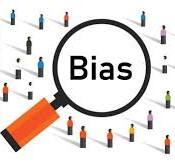
The Pros and Cons of Blogging as a Freelance Journalist
As soon as blogging became mainstream in the early 2000s, a never-ending debate was born: Is blogging a viable form of journalism for Freelance Journalists?
In most cases, the answer is no. However, blogging is still an incredibly important source of content and community for readers and journalists alike. It may not be considered factual reporting, but its influence persists. This duality leaves us with something else to ponder: Does blogging pose a reputational risk to professional journalists, especially those who are freshly freelance reporters in the current landscape of increasing media layoffs?
Let’s take a look at the pros and cons of blogging as a freelance journalist, considering the challenges and opportunities this medium presents.
Benefits of Blogging as a Freelance Journalist
Depending on your professional goals, there are many reasons to begin blogging as a Freelance Journalist. Just a few include:
- Personal branding: In a job market as competitive as journalism, it’s essential to hone your craft and stand out from the crowd. By building a blog presence, you can discover and improve your unique voice and zero in on the stories and writing style that make you a one-of-a-kind reporter. When a new job opportunity comes along, your blog can prove your worth.
- Reader engagement: It’s easy to feel disconnected from your readers at a traditional media outlet. With blogging, you have a direct line to the hearts and minds of your audience. They can leave comments and email you directly in a way that’s difficult to emulate at a large media house.
- Audience accessibility and empowerment: As a blogger, no one will tell you what to cover and what to cut. If there’s a story no one else is telling, you can be the one to break it quickly, cheaply, and directly. This can empower both you and your readers and reinvigorate your passion for storytelling.
But before you head over to WordPress, there are a few things to keep in mind, especially for Freelance Journalists.
The Risks of Blogging as a Freelance Journalist
Despite the many benefits of blogging, as a trained journalist, you cannot forgo the code of ethics you learned at J school. With so much freedom and so little regulation, blogging can tempt even the most rigid of reporters to forsake the honor code.
Most importantly, you won’t have an editor looking over your shoulder. Even if that sounds nice, the editor is the one who will catch mistakes and oversights you otherwise would have missed. From factually inaccurate statements to unreliable sources to grammatical errors, you might very well publish something that damages your career long-term.
Additionally, without the media house resources to interview sources, you might be forced to glean information from other journalists’ stories. While this would be fine for a non-journalist blogger, as a professional reporter, you might find yourself flirting with plagiarism.
How to Reduce the Risks
Want to reap the benefits of blogging without taking unnecessary risks as a Freelance Journalist? Be sure to:
- Only publish content you wouldn’t mind a future employer or big-name editor seeing.
- Before hitting post, ask yourself if the story would get your favorite J-school professor’s approval – particularly as it relates to the code of ethics you abide by.
- Reach out to journalism peers to review any content you’re unsure of. Don’t rely on them to act as editors; instead, use them as a gut check.
Navigating modern media isn’t easy as a freelancer, but 5WH is here to help. To learn more about membership, visit www.5wh.com.
 Dedee Droege
Dedee Droege







